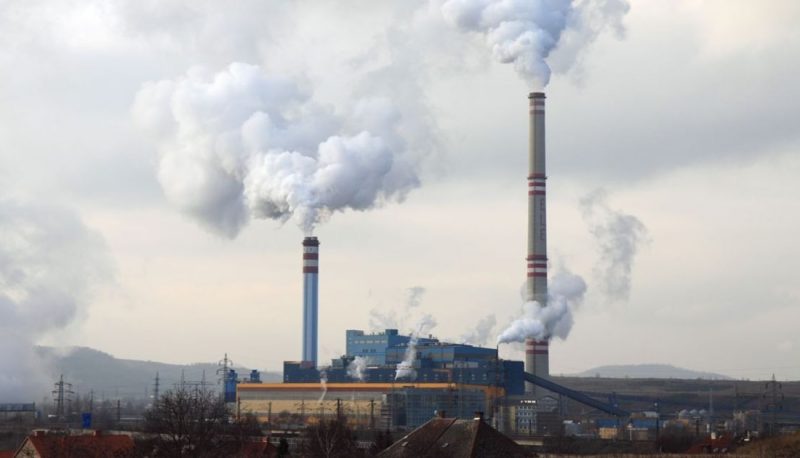Despite the urgent threat that climate change poses for people in the U.S. and around the world, Trump continues to nominate judges with appalling records on environmental issues, including rulings that put big business profits before people and that limit the power of the Environmental Protection Agency (EPA). Confirming any of them will damage our health and well-being and our planet.
Below are just four examples of the many confirmed judges whose records make clear their eagerness to serve corporate interests over protecting public health and the environment.
Andrew Oldham
U.S. Circuit Judge for 5th Circuit Court of Appeals
In 2016, Oldham said, “The reason why the administrative state is enraging is not that we disagree with what the EPA does, it’s the illegitimacy of it.” This extreme position questioning the legitimacy of a federal agency makes clear just how dangerous his thinking is to our health and to the environment.
When Oldham was deputy solicitor general of Texas, he argued against the EPA’s authority to regulate stationary sources of greenhouse gas emissions. He also supported overturning Massachusetts v. EPA, a case in which the Bush-era EPA claimed that carbon dioxide and greenhouse gases did not qualify as air pollutants. The Supreme Court’s decision rejecting their claim set an important precedent that shaped the environmental policy that followed.
Oldham called President Obama’s Clean Power Plan and the EPA itself “utterly and fundamentally illegitimate,” and viewed it as an invasive attempt to control Americans’ lives—demonstrating his callous disregard for the vast benefits it would have by cutting carbon pollution by 32 percent by 2030. Oldham’s opposition indicates that he would rather protect the interests of big businesses than the lives of everyday people and future generations.
Ryan Nelson
U.S. Circuit Judge for 9th Circuit Court of Appeals
Nelson served as deputy assistant attorney general for the Justice Department’s Environmental and Natural Resource Division during the Bush administration from 2006-2008. There, he worked on several cases aimed at limiting environmental protections.
In Earth Island Institute v. Hogarth, Nelson argued on behalf of the administration that yellowfin tuna should be labeled as “dolphin safe” even if caught using nets that killed millions of dolphins. He also advised the Bush administration in Massachusetts v. EPA in which they sought to stop regulating greenhouse gases.
During Nelson’s committee hearing in 2018, Sen Kamala Harris, D-Calif., asked him if he believed humans contribute to the growing threat of climate change. Nelson struggled to definitively answer this on the basis that he is not a scientist, demonstrating a disturbing willingness to avoid facts that contradict his personal agenda.
Daniel Collins
U.S. Circuit Judge for 9th Circuit Court of Appeals
Collins’ record includes protecting fossil fuel companies from being held accountable for their role in pollution and climate change. For instance, Collins defended Occidental Petroleum when a group of indigenous Peruvians filed a lawsuit against the company for 30 years spent spilling oil and toxic waste on their lands
He represented Royal Dutch Shell in in Comer v. Murphy Oil et al., where victims of Hurricane Katrina sued numerous fossil fuel industries for their substantial role in contributing to the climate change that made the storm so devastating. And in Native Village of Kivalina v. ExxonMobil et al., he represented Shell when native Alaskans sued fossil fuel companies for their role in coastal erosion and rising sea levels.
The fact that the 9th Circuit covers about 75 percent of public lands only makes Collins’ record more troublesome.
Patrick Wyrick
U.S. District Court Judge for the Western District of Oklahoma
During his time as solicitor general of Oklahoma, Wyrick worked closely with Scott Pruitt, who prior to his appointment as Trump’s EPA Administrator served as Oklahoma attorney general. In State of Oklahoma; Oklahoma Industrial Energy Consumers; Oklahoma Gas and Electric Company v. EPA; Sierra Club, Wyrick and Pruitt were against the EPA’s plan to protect scenic outlooks in national parks through the Regional Haze Program of the Clean Air Act. In State of West Virginia et al. v. EPA, they challenged clean air standards the EPA set for oil and gas drilling.
Like Oldham, he also opposed Obama’s Clean Power Plan and his holdings with oil and gas companies (which he failed to disclose) and his close coordination with them in his official role raised serious ethical concerns.
Future Implications
Our courts play an essential role in protecting our health and safety, and these four judges’ alarming records make clear just how much is at stake in the fight against climate change. They all serve as prime examples of judges who would use their positions to protect corporate interests over the rights of everyday Americans. Their dangerous views block our efforts to ameliorate the growing problem of climate change. And what’s worse, this short list is but a snapshot of Trump’s anti-environment judicial impact.
If federal judges continue to enable companies to pollute our planet, the global ramifications will be monumental—global temperature will continue to rise, intensifying the climate crisis that is already wreaking havoc. We need judges that understand the pertinent threat of climate change, particularly for systemically oppressed communities.
